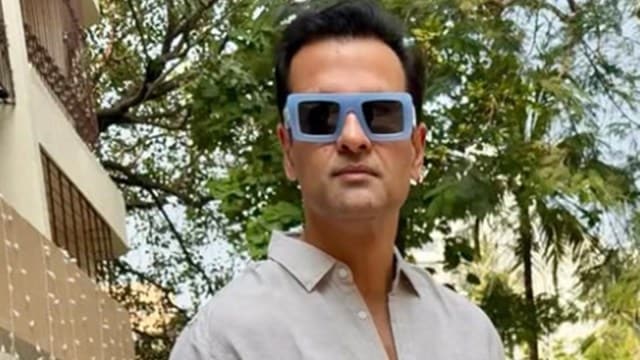📣 For more lifestyle news, click here to join our WhatsApp Channel and also follow us on Instagram
‘I went on a really stupid diet, and…’: Rohit Bose Roy on losing 16 kgs in 25-26 days for Shootout at Lokhandwala
What are the short- and long-term health risks of extreme diets like water fasting for rapid weight loss?
 Rohit Bose Roy on the struggle of transitioning out of such diets (Source: Instagram/Rohit Bose Roy)
Rohit Bose Roy on the struggle of transitioning out of such diets (Source: Instagram/Rohit Bose Roy)Actors often push their physical limits to prepare for roles, undergoing extreme transformations to achieve the desired look. Rohit Bose Roy recently opened up about his drastic weight loss journey for the 2007 film Shootout at Lokhandwala.
Speaking on Cyrus Broacha’s YouTube channel, he revealed, “I went on a really stupid diet, and I will never do that again. I had to look emaciated. I lost 16 kgs in 25-26 days. I was on a water diet. It was really intense.”
Roy admitted the dangers of such extreme diets, adding, “Yes, it is dangerous for the organs, and that’s why I called it stupid. I won’t do it again for anything. I’ve heard stories of actors in Hollywood following similar diets, and some have actually died in the process.”
He also highlighted the struggle of transitioning out of such diets and warned against being influenced by curated content on social media, saying, “To get out of the diet is also a struggle. It plays on your mind because you look a certain way while following it, and then you want to look like that forever — but nobody can maintain that look forever. I always say, don’t go by my Instagram account; I’m putting my best version there.”
So, what are the short- and long-term health risks of extreme diets like water fasting for rapid weight loss?
Kanikka Malhotra, consultant dietician and certified diabetes educator, explains, “Extreme diets like water fasting pose significant short- and long-term health risks. Short-term risks include dehydration, fatigue, dizziness, and electrolyte imbalances, which can lead to serious complications like arrhythmias or kidney issues. Rapid weight loss often results in muscle loss and nutritional deficiencies, as essential nutrients are severely restricted. Long-term risks encompass chronic health issues such as gallstones, weakened immune function, and potential organ damage due to malnutrition. Additionally, extreme dieting can trigger disordered eating patterns and psychological distress, making sustainable weight management more challenging.”
 Prioritise whole foods, including fruits, vegetables, lean proteins, and whole grains, while reducing processed foods and added sugars. (Source: Freepik)
Prioritise whole foods, including fruits, vegetables, lean proteins, and whole grains, while reducing processed foods and added sugars. (Source: Freepik)
Psychological impact of extreme dieting
Addressing the psychological impact of extreme dieting is crucial due to its potential to foster disordered eating and mental health issues. Malhotra notes, “Extreme diets often lead to obsessive thoughts about food and body image, which can result in anxiety, depression, and social isolation. The pressure to maintain a specific appearance post-transformation can exacerbate these feelings, creating a cycle of guilt and shame when individuals struggle to adhere to unrealistic standards. This psychological strain can hinder overall well-being, leading to harmful behaviours such as binge eating or further restrictive dieting, ultimately undermining long-term health and self-esteem.”
Safely achieving weight loss goals without compromising health
To achieve weight loss safely, Malhotra says, individuals should focus on sustainable lifestyle and habit changes rather than extreme diets. She elaborates on them:
Balanced Diet: Prioritise whole foods, including fruits, vegetables, lean proteins, and whole grains, while reducing processed foods and added sugars.
Portion Control: Monitor portion sizes to avoid overeating and consider using smaller plates to help manage servings.
Regular Exercise: Engage in at least 150 minutes of moderate aerobic activity weekly, complemented by strength training twice a week to preserve muscle mass.
Mindful Eating: Practice mindful eating to enhance awareness of hunger cues and improve satisfaction with meals.
DISCLAIMER: This article is based on information from the public domain and/or the experts we spoke to. Always consult your health practitioner before starting any routine.
📣 For more lifestyle news, click here to join our WhatsApp Channel and also follow us on Instagram



- 01
- 02
- 03
- 04
- 05
























